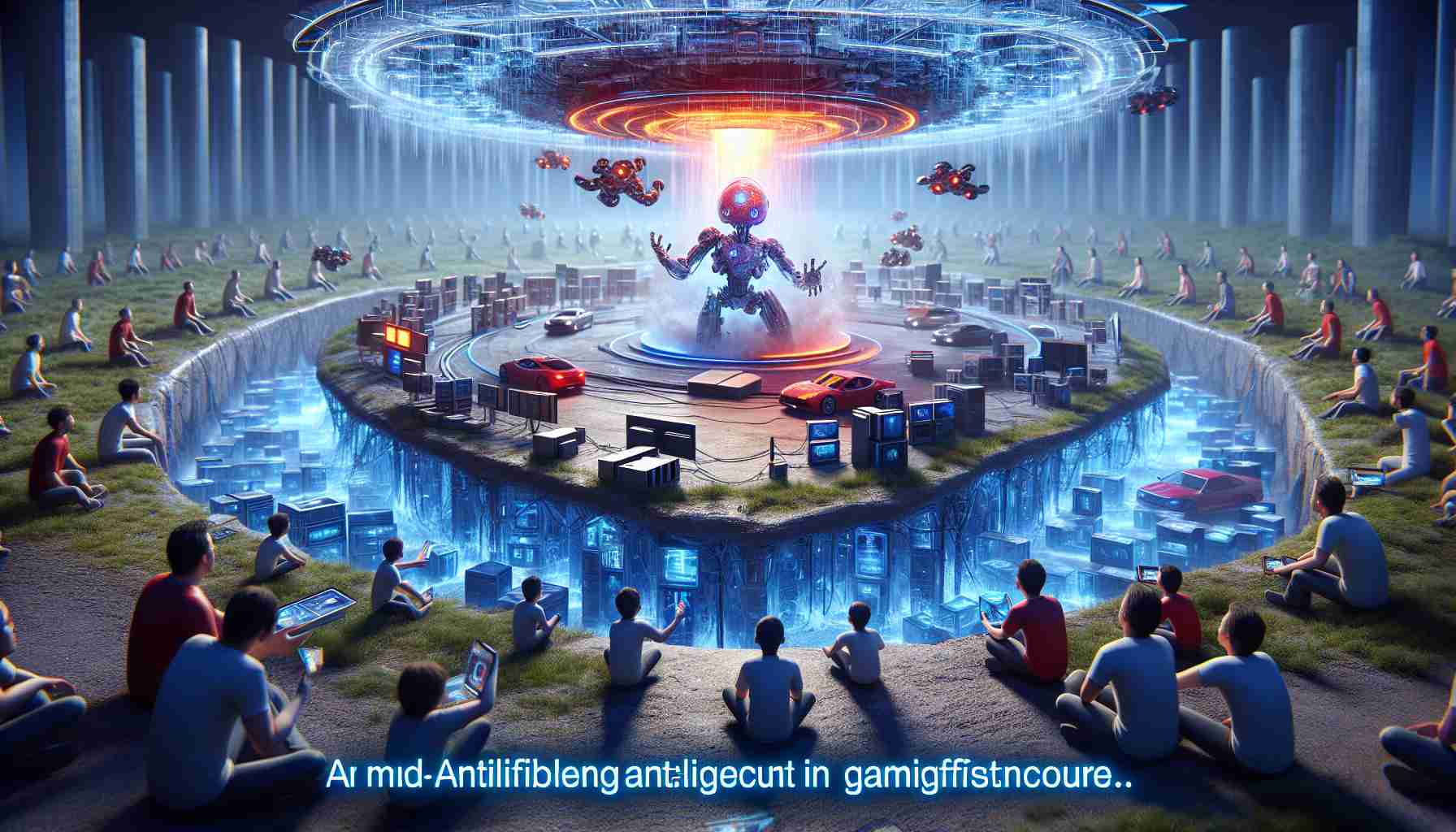In an unprecedented leap forward, Nvidia has unveiled a new wave of AI technology set to redefine the gaming landscape. Dubbed “Project Empower.” This revolutionary initiative promises to enhance gaming experiences with groundbreaking features like ultra-realistic graphics and adaptive gameplay tailored to individual player styles.
At the core of Project Empower is Nvidia’s cutting-edge AI-driven algorithms, designed to dynamically render lifelike environments in real-time. This ensures that gamers are not only playing visually stunning games but are also immersed in worlds that react and change based on their actions. According to Nvidia’s recent presentation, these AI tools can generate complex textures and intricate environmental details, making traditional pre-rendered graphics pipelines obsolete.
The most intriguing aspect of Nvidia’s new technology is its ability to adapt to each player’s unique gaming behaviour. Through machine learning, games will learn from player decisions, creating distinct paths and challenges that evolve over time. This promises to deliver a personalised gaming experience that could revolutionise player engagement and game replayability.
While Nvidia is yet to reveal the specifics of how these AI enhancements will be integrated into existing game engines, the gaming community is buzzing with anticipation. Developers are optimistic that Project Empower could open doors to creative possibilities previously unimaginable, while players eagerly await the chance to dive into these intelligent, ever-changing worlds.
In summary, Nvidia’s Project Empower represents an exciting step toward the future of interactive entertainment. The implications for game design, storytelling, and user experience are vast, signalling a new era where games adapt and grow alongside their players.
Nvidia’s Project Empower and Its Potential Impact Beyond Gaming
Nvidia’s Project Empower has caught the imagination of gamers worldwide, but its implications stretch far beyond virtual landscapes. This remarkable innovation is set to influence multiple facets of society, from entertainment to education and even mental health.
How could this technology benefit sectors outside of gaming? Education could leverage Project Empower’s adaptive AI to create interactive learning environments tailored to each student’s needs, offering personalised educational journeys. This kind of technology provides an engaging alternative to traditional teaching methods, which could help address educational disparities.
In the realm of mental health, the therapeutic potential is equally significant. AI-driven, adaptive environments could serve as innovative tools for cognitive behavioural therapy or stress relief, offering virtually customisable safe spaces where patients can interact and progress at their own speed.
Are there any concerns with this technology? While the possibilities are exciting, there are ethical and privacy concerns. How personal data is collected, stored, and used by these AI systems remains largely undefined. Protecting user autonomy and ensuring transparent data usage policies are essential to gain user trust and help mitigate potential misuse of the technology.
Who stands to gain the most? While individual gamers and tech enthusiasts stand to benefit greatly, communities and businesses devoted to education, healthcare, and personalised content delivery could also find innovative applications.
In conclusion, Nvidia’s Project Empower holds transformative promise for industries far beyond gaming, with potential advantages in personalised learning and mental health. As this technology continues to develop, it is crucial to address both its potential and pitfalls for the broader benefit of society. For more on AI and technology, check out link name.



















